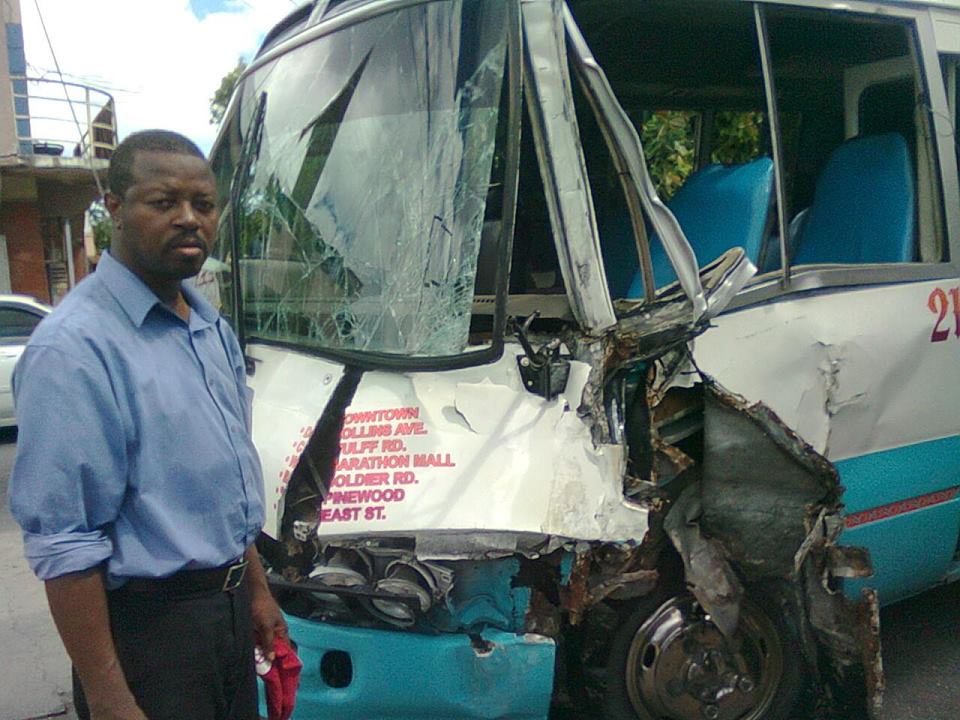
By Jerry Roker | For Bahamas Press
Is there a code of conduct for minibus operations and operators? If there is, is it being enforced? Are commuters and the public at large aware of the contents of such code, if it exist, that is?
It is vital not just for the much-needed improvement of service but for safer driving on the roadways. For far too long, this has been allowed to go unchecked, resulting in wanton dissatisfaction of commuters and road accidents.
It should be noted that not all operators are offenders, as some continue to provide the desired service and adhere to traffic laws. Unfortunately, they seem to be in the minority thereby exposing users of public transportation to many errant operators. It must also be noted that some passengers are comfortable with the service provided by the errant ones who, without consideration for others, engage in blasting music sometimes laced with vulgar lyrics, overloading, and reckless driving.
One could easily state that some schoolchildren are among those who are comfortable. However, it is not confined to that group as some adults are guilty and are abusive to passengers who object. These objections and the seeming joy the schoolchildren in question derive in some buses would serve to embolden the operators to continue their daily service and traffic violations. This has led to an unfortunate national normalisation and acceptance of this disservice meted out to commuters.
What is even more unacceptable is that it happens even as Police are on the roadways. Some officers have been seen trying to curb the situation, but clearly it appears not to be holistic. Also, it is no secret that some drivers who are pulled over for violating traffic laws call a superior officer and the rank has to back off.
Again, this would make the ranks hesitant to execute their duties having being
made to feel that their actions to ensure traffic order have no value. While
this is not the only factor, it is a contributing one to daily transgressions
on our roadways. Overtaking, meandering in and out of lanes, using unauthorised
roads to bypass traffic lights and stopping and moving off at random are just
some of what transpire daily from some minibus operators.
Some concerned passengers and other road users would have made reports to the Police. It is not clear how those have been handled in the past and what the plan is for the future. One suggestion would be for such reports and the subsequent actions taken to be made public. Following such reports, if errant operators who endanger passengers and other road users are made to feel the brunt of the law, it could become a deterrent.
Members of the public must be made to feel that they could genuinely contribute to improving the system and not being made to feel their time is being wasted. This means that internal mechanisms within the Force would have to be in place to so accommodate. Attitudes that allow for easy accommodation would, therefore, be a concern in this dispensation. Much has been said about the manner in which some ranks relate to members of the public.
Attitudes, however, are not confined to the
Police, but the operators as well. While both sets could be challenging to
change, it’s not impossible.
In addition, the use of undercover cops in some minibuses would help. If that
were to be implemented, operators would eventually realise that they are
targets for the improvement of the service. A combination of these efforts, if
implemented and sustained, would be steps in the right direction much to the
satisfaction of commuters. The longer these are held back, frustration will
increase and the situation could worsen.
That said, obviously the biggest challenges surrounding the code of conduct would be implementation followed by monitoring. It would not be easy. Here again, the public must be made to feel a sense of ownership, which makes it easy for them to willingly participate. Ironically, they feel the brunt of the violations by the operators and are also made to feel helpless in their quest for recourse. More than likely, they may want to gauge the effect first before committing. Who can blame them, for they have unflattering stories to tell.




![A Con Artist [RACIST] wants Bahamians to fight progress – WELL, WHAT IS THIS?!](https://www.bahamaspress.com/wp-content/uploads/2025/07/Toby-Smith-218x150.jpg)


